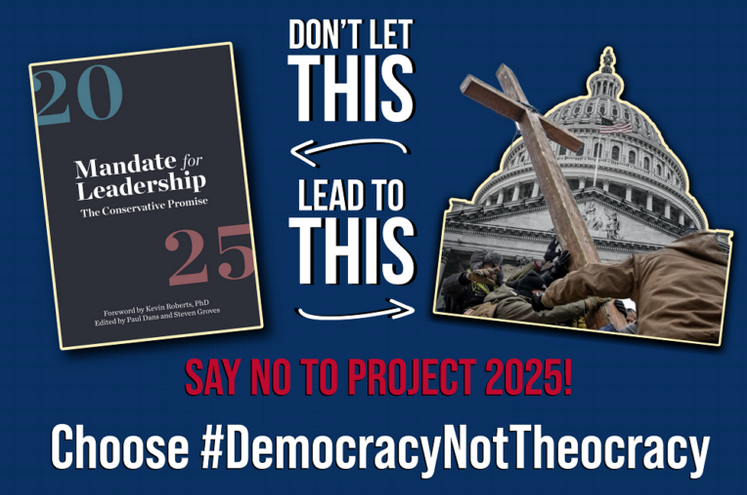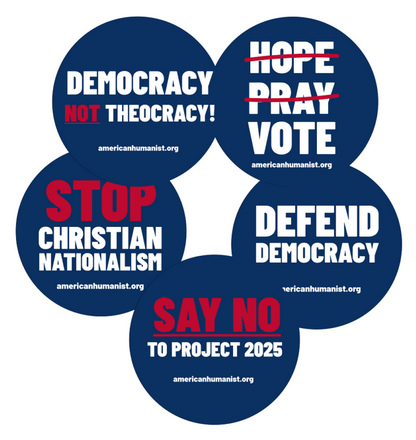They Wrote the Playbook for Theocracy.
We Put Up A Fight.

When the far right published Project 2025, most Americans had never heard of it. So we fixed that.
Democracy Not Theocracy became one of the most ambitious and visible projects in our organization’s history. The campaign reached hundreds of thousands of people across social platforms, in communities, and on college campuses. It delivered real tools into the hands of voters, activists, and local organizers who were ready to act but needed resources and coordination.

We trained and supported Democracy Defense Fellows—humanist student leaders in swing states—who educated their peers about Project 2025 and helped turn widespread confusion into informed resistance. Fellows received onboarding, communications support, and materials to table, speak, and mobilize on their campuses.

We distributed thousands of handwritten postcards through organized letter-writing parties. Some were hosted by AHA chapters; others were pulled together by small groups of friends around kitchen tables. Staff offered virtual training and encouragement, and we mailed supplies to anyone who asked. It was direct, personal, and widely adopted.
We created and released dozens of shareable graphics that broke down the details of Project 2025 for digital audiences, paired with messaging that gave people language to talk about what was happening. Some of those designs became stickers, which we offered to members at no cost. They spread organically—across laptops, water bottles, bookshops, and community bulletin boards.

To support local leadership, we launched AHA’s largest-ever chapter grant program, distributing more than $15,000 to community-based efforts aimed at educating voters, holding forums, and building coalitions. These funds helped activate groups with deep local knowledge and credibility, allowing them to respond to threats in real time with campaigns that fit their context.
The campaign focused on clarity, visibility, and empowerment. It gave people tools to take action immediately—in their own networks, towns, and neighborhoods. And it left no doubt: the humanist movement is paying attention, organizing fast, and investing in defense of secular democracy where it matters most.